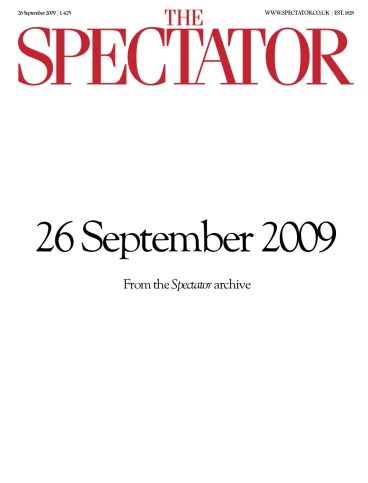Too much information | 23 September 2009
Freemasons have been getting steadily less glamorous since their apotheosis in The Magic Flute. Nowadays, one thinks of them in connection with short-sleeved, polyester shirt-and-tie sets, pens in the top pocket, sock-suspenders and the expression ‘My lady wife’. I honestly can’t see them guarding the secrets of the universe. Dan Brown’s new conspiracy theory cosmic

